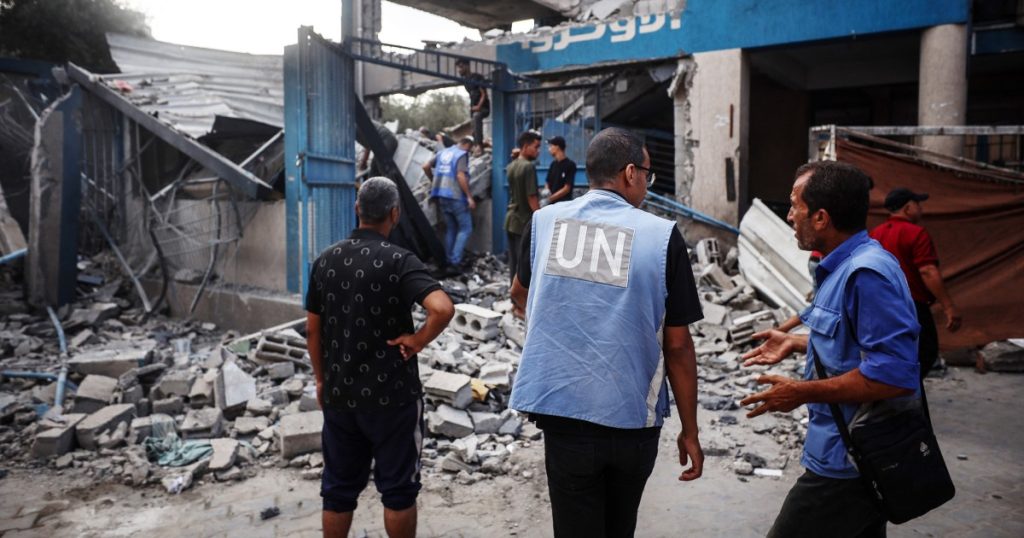UNRWA plays a crucial role in providing essential services in the Gaza Strip, acting almost like a state by offering health care, education, and psychological support to Palestinians in the region. The recent move by Israel to outlaw any contact between itself and UNRWA has caused dismay among Palestinians, countries around the world, and aid organizations. Israel claims that the organization has been infiltrated by Hamas, citing its alleged involvement in a terror attack. While not perfect, many believe that UNRWA is the only thing preventing a humanitarian disaster in Gaza as it provides for people’s most basic needs.
The ban on UNRWA raises concerns about making Palestinian lives unlivable and threatening their refugee status, which is tied to their hope of returning to the homes they fled during the 1948 conflict. Since its establishment in 1949, UNRWA has supported Palestinian refugees across various countries, maintaining a distinct Palestinian identity. Critics argue that UNRWA reinforces a refugee status instead of promoting integration and resettlement, setting it apart from the United Nations Refugee Agency, UNHCR. The organization’s mandate does not have an end date, adding to the controversy surrounding its operations.
The ongoing conflict has led to the closure of UNRWA schools in Gaza and the West Bank, with staff taking on different roles to support the community. While many medical facilities have been damaged, around half of UNRWA’s health care sites remain operational. Despite facing challenges, UNRWA continues to provide aid, including food supplies, water access, and medical assistance to the displaced population in Gaza. The agency faces financial constraints due to the withdrawal of funding by major donors, such as the United States, following the allegations made by Israel.
Israel has raised concerns about the alleged ties between UNRWA and Hamas, accusing the agency of employing Hamas operatives and allowing its premises to be used for militant activities. UNRWA has refuted these claims, highlighting its efforts to prevent such activities and pushback against any involvement with militants. The laws passed by Israel’s parliament aim to sever ties with UNRWA and prevent its operations within Israeli territory, potentially hindering the agency’s work in the region. Despite criticisms and allegations, UNRWA remains a vital lifeline for Palestinians in need of humanitarian assistance.
The ban on UNRWA has global implications, with several countries condemning Israel’s actions and expressing support for the agency’s ongoing work. The United States, a former major donor to UNRWA, has yet to resume funding, contributing to the agency’s financial challenges. Other countries have continued their support for UNRWA, recognizing its critical role in sustaining the lives of vulnerable populations in Gaza. The future of UNRWA remains uncertain as it navigates the restrictions imposed by Israel and seeks alternative ways to continue its operations effectively.
As UNRWA faces mounting challenges and scrutiny, it continues to provide essential services to Palestinians in the Gaza Strip, despite the risk of famine and other humanitarian crises. The agency’s efforts to support education, health care, and basic needs for the displaced population have been crucial in a region plagued by conflict and instability. Without UNRWA, the situation in Gaza would likely deteriorate further, leaving vulnerable civilians without access to vital resources for survival. The international community’s response to the ban on UNRWA will play a significant role in shaping the future of humanitarian aid in the region.


